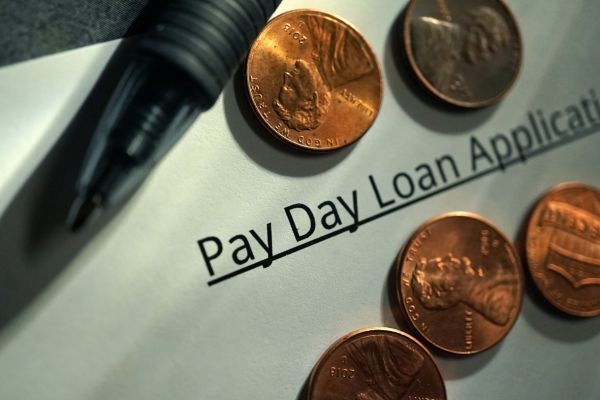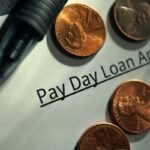If you’ve ever been short on cash and staring down a pile of bills, you’ve probably heard of payday loans. They’re advertised everywhere—on TV, online, even on those flyers stuck to lamp posts. And let’s be real, the idea of getting quick money when you’re desperate sounds almost too good to be true. But like most financial shortcuts, there’s more beneath the surface. So, let’s dive into the pros and cons of payday loans, break them down in plain English, and figure out whether they’re a lifeline or just a financial trap.
What Exactly Are Payday Loans?
Before weighing the pros and cons of payday loans, it’s worth understanding what they are. A payday loan is basically a small, short-term loan that’s supposed to be paid back by your next paycheck. Sounds simple enough, right? You borrow a few hundred bucks, cover an emergency expense, and then pay it back when you get paid.
But here’s the catch—these loans often come with insanely high fees and interest rates. We’re talking triple-digit annual percentage rates (APRs) in some cases. Lenders pitch them as “fast cash” with “no credit check,” which is part of why they’re so tempting.
The Pros of Payday Loans
Alright, let’s give payday loans some credit. They aren’t all bad, and there are reasons people keep using them.
Quick Access to Cash
The biggest upside is speed. You can walk into a payday loan shop (or apply online) and walk out with money the same day. For someone dealing with an emergency—like a broken-down car, a medical bill, or rent due tomorrow—that fast turnaround can feel like a lifesaver.
No Credit Score Judgment
Unlike banks or credit card companies, payday lenders usually don’t care about your credit history. Whether you’ve got bad credit, no credit, or past financial mistakes, you can still get approved. For a lot of folks who feel shut out by traditional lenders, this feels like a chance to breathe.
Simple Process
Let’s be honest—bank loan applications can be a headache. Tons of paperwork, waiting days or weeks, and sometimes still getting denied. Payday loans cut through all of that. A paycheck stub, proof of income, and an ID are usually enough.
The Cons of Payday Loans
Now, this is where things get messy. The cons of payday loans are what make them controversial—and in some cases, downright dangerous for your financial health.
Extremely High Interest Rates
This is the big one. Payday loans might only be a couple hundred dollars, but the fees pile up fast. If you roll over your loan (which a lot of people do when they can’t pay it back right away), the debt snowballs. Suddenly, that $300 loan could cost you $700 or more before you know it.
Short Repayment Time
These loans are meant to be paid back with your next paycheck. That’s usually two weeks. And let’s be real—if you’re borrowing money today because your budget’s already tight, odds are you won’t magically have extra money in two weeks. This short window often leads people into a cycle of borrowing again and again.
The Debt Trap
One of the scariest cons of payday loans is the trap people fall into. You pay one off, then immediately need another because now your paycheck is smaller after repaying the first. It becomes a revolving door of debt that’s really hard to escape.
Hidden Fees and Sneaky Terms
Some payday lenders aren’t exactly transparent. Sure, they tell you the basic cost, but the fine print is where the nasty surprises hide. Extra fees for late payments, processing, or renewals can quietly drain your wallet.
Payday Loans vs. Other Options
So, are payday loans your only shot when you’re broke? Not necessarily. Comparing the pros and cons of payday loans with alternatives is worth doing. Credit unions, for example, sometimes offer small, short-term loans with way lower interest. Even using a credit card cash advance—though not ideal—can be less brutal than payday loan fees. And don’t overlook personal loans, side gigs for quick cash, or even negotiating payment extensions with service providers.
Why People Still Use Them Anyway
Here’s the thing—despite all the downsides, millions of people still take payday loans every year. Why? Because when you’re desperate, long-term consequences don’t matter as much as solving today’s problem. If your electricity is about to be shut off, you’ll grab at the fastest fix you can find. Payday loans promise that instant fix, even if the long-term math doesn’t make sense.
Should You Take One?
So, after laying out the pros and cons of payday loans, the question remains—should you get one? Honestly, it depends. If you’re in a true emergency, absolutely certain you can pay it off in full with your next paycheck, and you’ve got no other option, then maybe. But if you’re already living paycheck to paycheck, chances are a payday loan will just make things harder down the road.
The smarter play is to treat payday loans as a last resort. Explore other options first. Talk to your bank or credit union. Ask family or friends. Look into local nonprofits that help with emergency bills. Even selling something you don’t need anymore is safer than diving headfirst into payday loan debt.
Final Thoughts
At the end of the day, the pros and cons of payday loans boil down to one thing: speed versus cost. They give you money fast when you’re in a bind, but they can also drag you into an expensive cycle of debt that’s hard to break free from. The best approach? Know exactly what you’re signing up for before you commit.
Life throws curveballs, and payday loans might seem like the easy fix. But easy doesn’t always mean wise. If you do take one, go in with your eyes open and a solid plan to pay it off fast. Otherwise, it’s better to find a slower, safer path than to risk sinking into a financial hole that keeps getting deeper.







